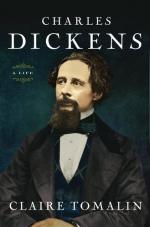|
This section contains 3,176 words (approx. 11 pages at 300 words per page) |

|
By the time Dickens was thirty, England's leaders and its people were growing increasingly aware of social ills that needed correction. Pollution was increasing. Poverty, crime, and disease were facts of life. Churches, private charities, and antivice societies were doing what they could to combat some of these problems, but they were fighting a losing battle.
There were people who argued that reforms were not the answer to all of the country's ills. Many Victorians felt that helping the needy sabotaged the economy, which theoretically rewarded hard work and punished sloth. Prior to becoming a reformer, Samuel Barnett remarked, "Indiscriminate charity [is] among the curses of London.... I would say that the poor starve because of the alms they receive.... The people never learn to work or save." 116 Others contended that there was something inherently, even genetically, wrong with the lower class that predisposed them to...
|
This section contains 3,176 words (approx. 11 pages at 300 words per page) |

|




